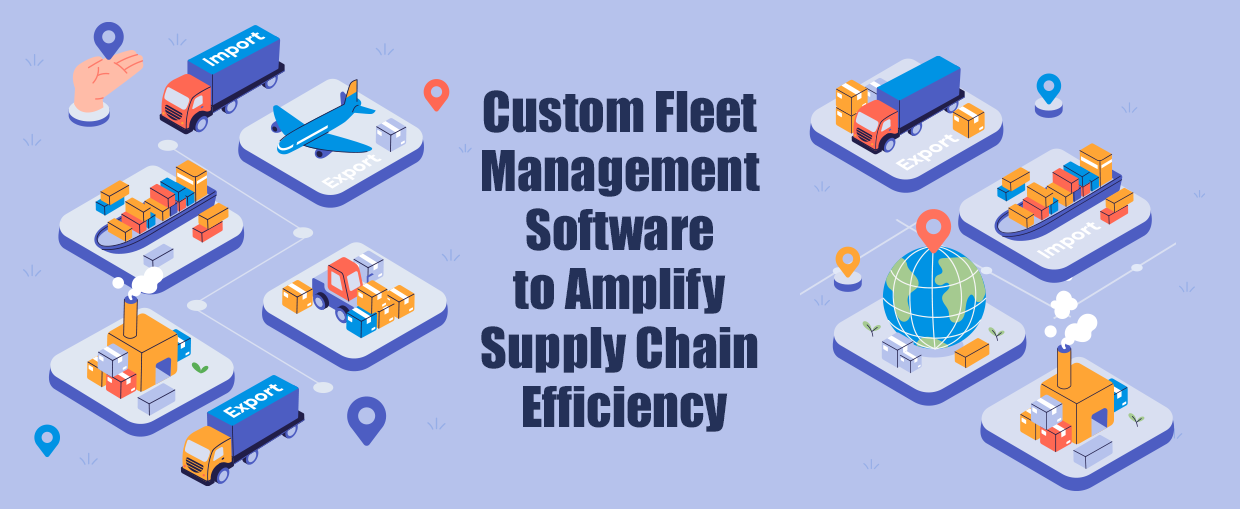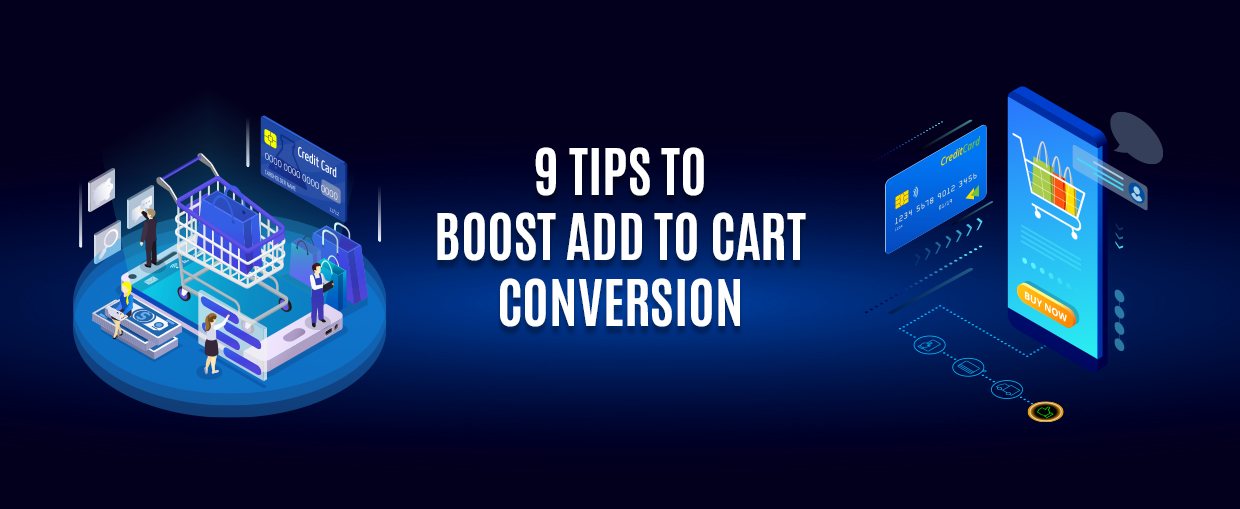Effective fleet management is essential for businesses across various industries in today’s fast-paced business environment. The capacity to effectively monitor, track, and maintain assets can have a substantial impact on operational success and profitability, whether it is a logistics company optimizing delivery routes, a transportation company managing a fleet of vehicles, or a construction company managing a fleet of heavy machinery. Custom fleet management software has completely revolutionized fleet management in the age of digital transformation. Tailored to fit enterprises’ unique requirements and work processes, custom fleet management software enables firms to improve safety, save costs, simplify processes, and make data-driven decisions.
Is your business thinking about developing a custom fleet management software solution? We will get into the specifics of developing a robust system that meets your company’s requirements in this extensive guide on custom fleet management software development.
What is Fleet Management Software?
Organizations can effectively manage their fleet of vehicles by utilizing a set of tools referred to as fleet management software. It helps to optimize business processes and reduce operational costs by collecting and analysing data from different sources. Features like GPS vehicle tracking, fuel monitoring, maintenance scheduling, driver management, automated vehicle assignment, and real-time reporting are often included in this software. Organizations can track their vehicles more effectively with custom fleet management software, which can result in increased safety, lower maintenance costs, and higher fuel efficiency.
A wide range of organizations, including logistics firms, governmental bodies, transportation companies, and even small enterprises with a few vehicles, can benefit from custom fleet management software solutions. In the upcoming years, the fleet management market is anticipated to increase as a result of the growing use of cutting-edge technologies like artificial intelligence, machine learning, and the Internet of Things. These technologies offer more advanced ways to improve fleet performance and customer service.
When considering the development of custom fleet management software, partnering with a reputable software development company is crucial. Quality assurance (QA) consulting services play a critical role in the development process of custom fleet management software. These services help identify and address potential issues early on, ensuring that your software meets the highest standards of performance and reliability. It is also essential for the company to hire developers who have experience in developing solutions for the logistics and transportation sector, as they will have a deep understanding of the unique challenges and requirements of fleet management.
5 Common Challenges in Fleet Management and How Fleet Management Software Can Solve Them
For business owners, maintaining a fleet of vehicles poses a number of challenges. Fleet management software provides a comprehensive strategy to deal with these challenges. Given below are some of the challenges that fleet business owners have to face when it comes to fleet management.
1. Increasing Operational Costs
Variations in fuel prices and the cost of maintaining vehicles can increase operational expenses. The budget of a business is strained as a result.
Solution:
Fleet management software helps to keep track of how much fuel each vehicle uses. Based on real-time data, it also suggests the routes that use the least amount of fuel. It maximizes your car’s potential and helps you save money. The software aids in the scheduling of regular checks as well. This minimizes unforeseen expenses and helps prevent issues.
2. Ensuring the Safety of Drivers
Keeping drivers safe is of utmost importance. Beyond posing a risk to human life, accidents may also incur expenses and result in legal consequences.
Solution:
Numerous tools to improve the safety of drivers are offered by innovative software solutions. Risky patterns are identified by studying driving habits including abrupt braking and speeding. To encourage drivers to adopt safer driving practices, it gives them feedback in real time. Accidents are less likely as a result. Along with avoiding liabilities, it also helps to preserve the company’s reputation.
3. Regulatory Compliance
It can be difficult to navigate through constantly changing transportation regulations. Fleet managers also have to deal with the challenge of compliance standards.
Solution:
Modern fleet management software adheres to the most recent legal requirements and compliance standards. Electronic logging devices (ELDs) for Hours of Service (HOS) compliance is an example of this. This guarantees that reports are completed accurately and on time. Additionally, they monitor vehicle emissions to ensure that the fleet complies with environmental regulations. This reduces the possibility of fines and other legal issues.
4. Vehicle Maintenance and Downtime
Unplanned vehicle downtime can result in revenue losses, unhappy customers, and delayed deliveries.
Solution:
This challenge is handled by fleet management software through the use of predictive maintenance modules. The software forecasts when maintenance is necessary by examining data from vehicles and their components. With this preventive strategy, fleet managers can schedule maintenance for optimal times. This keeps vehicles on the road by reducing unplanned breakdowns.
5. Communication and Real-time Insights
Fleet managers require real-time insights into the whereabouts and conditions of their vehicles, particularly while handling emergencies or unexpected situations.
Solution:
Fleet management software with advanced tracking technology allows you to view each vehicle’s real-time location. Fleet managers can communicate with drivers, reroute vehicles as needed, and make quick decisions due to this feature. Consequently, businesses can guarantee that they manage unforeseen circumstances and maintain customer satisfaction.
Fleet Management Software Features and Benefits
While several vendors offer off-the-shelf systems, most businesses choose to implement custom solutions to have total control over the software and its features. Implementing custom fleet management software offers numerous advantages for businesses, including:
1. Route Planning and Optimization
One of the primary features of fleet management software is route planning. It assists logistics firms in determining the most efficient path to the destination by considering a number of factors, including distance, and traffic conditions.
2. Centralized Flow of Data
Logistics firms can track and manage their fleet or shipments at all times because of the centralized flow of data and information provided by fleet management software development. Every fleet of vehicles has a central organization that oversees numerous consignments and shipments at various management levels.
3. Real-Time Vehicle Tracking
Fleet management software assists logistics firms in managing both incoming and leaving cargo by providing real-time vehicle tracking. In order to keep customers informed of the status of their orders at all times, the majority of logistics companies offer real-time data sharing. The fleet management software provides the precise location of vehicles as they go toward their destination by utilizing cutting-edge technologies like GPS tracking.
4. Data Security
For the majority of logistics organizations, data security is a top priority because even a minor breach can have a major impact. Their fleet’s connection to the internet exposes the data to potential online threats and cyber-attacks. However, to safeguard against potential cyberattacks and data breaches, modern fleet management software systems make use of firewalls and sophisticated security measures.
5. Improved Driver Safety
Logistics organizations should prioritize driver safety because of the potential for accidents and the urgency of deliveries. The provision of real-time alerts and notifications on instances of dangerous driving is another significant advantage of creating and deploying fleet management software. Installing fleet tracking devices in vehicles is also a good idea. It has cameras that allow fleet managers to keep an eye on driving behaviours and help reduce accidents.
What to Choose: A Ready-Made or Custom Fleet Management Software?
When it comes to FMS software, you have two options: create a custom FMS or select from a variety of ready-made FMS offered by vendors. Here are the pros and cons of both types of fleet management software so that you can make a wise decision.
An FMS typically consists of hardware and software in addition to a number of functions required for efficient fleet management. Route optimization, driver profiles, and safety features are among the main features; however, there are also special and useful additional features that may be beneficial for your specific company, such as employee time management for easier payroll processing, dashcam integration, and geofencing. Ready-made FMS may be a wise option if you have a small budget, an easy business process, and an immediate requirement to implement a system.
However, you will have to wait till the provider develops and incorporates it into the software if you require something unique or customized. Also, there is only little room for modification with ready-made fleet maintenance software packages. Timely discovery of security holes in ready-made FMS can pose a big challenge. Timely customer service and support is also essential, but not all providers offer round-the-clock support. This is where the need for custom fleet management software comes in.
When it comes to custom FMS, every feature is made to work effectively as it is for the business operations of your organization. The wide variety of features will satisfy every requirement of your business. As your business needs them, you can add more features and functionalities. You are in charge of determining what, when, and how the software is updated. Additionally, you can specify the phases of a product’s evolution and the development schedule, as well as regulate and manage the project’s scope and expense. You design your user interface (UI) and determine whether or not it is easy for your employees to use.
One can add more features like real-time visibility, driver management capabilities, fleet dispatch and planning software, machine learning, driver performance, and retention solutions based on the demands of performance and data analysis as well as the requirements of your fleet. It always takes longer to build than a ready-made solution since custom software is built by taking into account your specific needs and business processes as well as the existing systems and infrastructure.
Selecting a fleet management system is an investment meant to benefit your business for a long time. Choose wisely to ensure your funds are allocated effectively.
Is Custom Fleet Management Software More Profitable in the Long Run?
A newcomer to the fleet management industry would benefit greatly from the ready-made fleet management software solutions. You can discover one you can use in a few days, they’re less expensive, and they handle all common difficulties. But in cases where your company is more mature than a beginner, inflexible fleet management solutions will not work. After all, you’ve worked at your company for some time and have a solid understanding of how things operate.
When you are unsure of your exact requirements and are not certain if you will be in the business for a long time, using ready-made software makes sense. Investing in assets and a custom fleet management platform makes sense if you’ve gone past those uncertainties. Before long, they will essentially pay for themselves and yield profits because they will have reached their break-even threshold! Custom fleet management software can therefore initially cost you more money and effort, but it will ultimately be worthwhile!
Concluding Thoughts
Investing in custom fleet management software presents a strategic opportunity to revolutionize supply chain operations. By harnessing tailored solutions, businesses can streamline logistics, optimize resource allocation, and enhance overall efficiency. As industries evolve and competition intensifies, leveraging technology tailored to specific needs becomes imperative. Embracing custom fleet management software not only addresses current challenges but also positions organizations to adapt and thrive in an ever-changing marketplace.
It’s not just about managing fleets; it’s about fostering efficiency within the supply chain landscape. If you are looking to develop a custom software solution for your business, contact us today!









